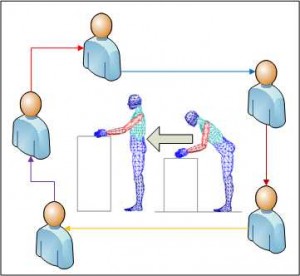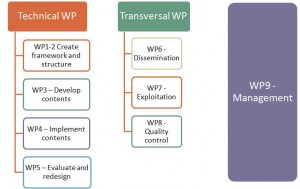PE-ABLE project emerges to cover the lacks of training, improving the capacities of the European OHS professionals and providing new skills for emergent activities that this type of workers should deploy in their daily work, since Participatory Ergonomics (PE) programmes is an increasingly important resource that decrease the number of MSDs cases at companies, then we can say that this project is enclosed in the “Developing Vocational Skills considering the labour market needs – New Skills for New Jobs” priority.
Therefore, PE-ABLE consortium proposes the development of a training course with innovate contents related to ergonomics and PE, and especially on skills and abilities to coordinate the PE group in order to improve the knowledge and capacities of the European workers.
PE-ABLE Project goals and expected results
The main objective of the PE-ABLE project is the development of the contents and the application of a formative tool to assure to European Occupational Safety professionals a worthy education and training along their professional career regarding to Ergonomics, Participatory Ergonomics (PE) and Personal Abilities and Skills, as well as develop the necessary actions to enhance it.
PE-ABLE will be an e-learning training course with two lines of knowledge:
- Ergonomics and PE.
- Personal abilities and skills to guide a PE programme.
These two knowledge lines will cover all the necessities that the OHS professionals are demanding in order to carry out PE programmes at companies.
The project e-learning tool will be available in two formats (on-line and CD-ROM) and 4 European languages (English, Spanish, Dutch and Portuguese).
Work plan and schedule
The project is divided into 9 work packages; each one has a clearly defined objective. WP1, WP2, WP3, WP4 and WP5 are the core of the project; they are linked sequentially and correspond to the phases of needs characterization, development, implementation and validation of the course. WP6 and WP8 are dedicated to dissemination and exploitation tasks, and WP8 and WP9 to quality and project management.
- WP1 Research and diagnosis of training needs
- WP2 Definition of an innovative VET curriculum
- WP3 Development of the formative content
- WP4 Development of the e-learning course
- WP5 Validation: Pilot-tests
- WP6 Dissemination
- WP7 Exploitation of results
- WP8 Quality Management
- WP9 Project Management


